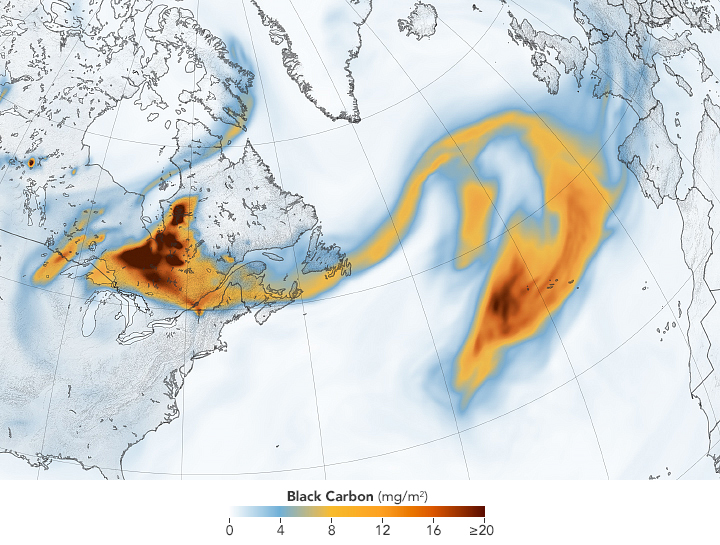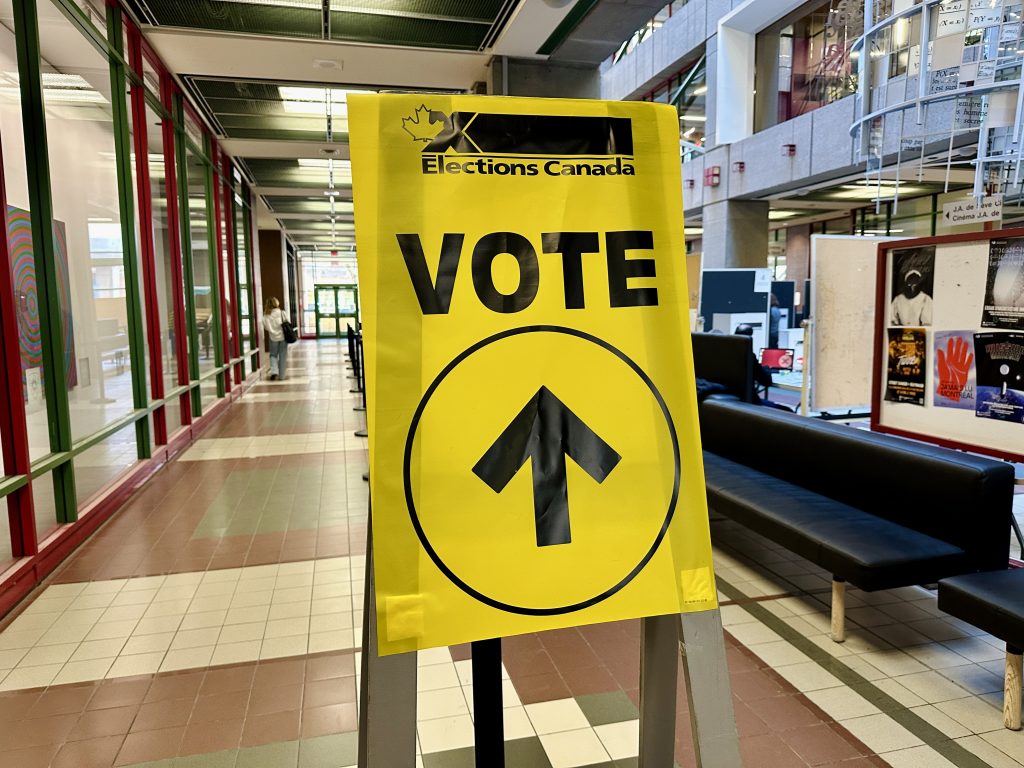Smoke from Quebec fires covering parts of Europe: NASA
Posted June 27, 2023 12:31 pm.
Last Updated June 27, 2023 6:27 pm.
NASA is reporting that smoke from wildfires in northern Quebec has reached Europe.
The American space agency says satellite imagery from Monday showed smoke extending across the North Atlantic Ocean to the Iberian Peninsula, France and other parts of western Europe.
NASA says that air quality in Europe has not deteriorated to the extent seen in Canada because of the height of the smoke in the atmosphere.
Smoky air led Environment Canada to issue smog warnings in much of southern Quebec over the weekend, and parts of the province’s westernmost region are still subject to an air quality alert.
“All that smoke is moving toward Europe, as we normally see the wind going from west to east, so that’s a normal pattern,” says Simon Legault, meteorologist for Environment and Climate Change Canada. “But they could be impacted by that smoke, not as much as we are or will be, but that’s something that might continue from time to time, because the forest of the fires probably won’t be ending or completely extinguish in the coming weeks.”
Quebec’s forest fire prevention agency says there are 75 fires burning in the province as of Tuesday afternoon, where more than two dozen fires are considered out of control.
Officials say rain that started falling Monday in parts of the province with the most threatening fires has not been sufficient to extinguish the flames.
It has not only impacted those forced to evacuate and worry about what comes next for them there, but for those living hundreds of kilometres away as well.

Marco Gratos and his wife, Kyra Stenslie, from Seattle, visiting Montreal during smog alert. (Credit: Alyssia Rubertucci, CityNews image)
“It wasn’t pleasant because I was here on vacation. So what a way to ruin your plans, right?” said Marco Gratos from Seattle. “But still, we went out and we were wearing masks and definitely it impacted our experience.”
For businesses in Old Montreal, usually jammed on a long holiday weekend, smog put a damper on things, as wet weather already did.
“It was supposed to be a beautiful weather on Sunday, so we were expecting a lot of customers on the street, in the terraces,” said Comptoir 400 waitress, Anaïs Héraut. “And with the smog, people stayed at home mostly, so we had a quieter day that then expected.”

Comptoir 400 waitress, Anaïs Héraut. (Credit: Alyssia Rubertucci, CityNews image)
“In terms of inconvenience, there was a bit of smokiness that caused a little burning sensation in my throat but then again I experienced similar events in France,” said Thierry Rose, saying he lived through a factory fire in Rouen, France.
Physicians say to take precautions, especially the elderly, children or who suffer from lung or heart issues.
“It’s not as if the impact is immediately within the next few seconds or minutes,” says Dr. Donald Vinh, infectious diseases specialist and medical microbiologist. “It can take a few days, especially if there’s continued exposure, and that can lead to an increase in medical visits that can itself stress the health care system capacity.”
And as fires rage on, so too will the smog days.
“The smoke plume will be coming toward the southern part of the province and eastern Ontario as well, so that might bring back some air quality problems,” said Legault.
Just as Montreal gets set for its International Jazz Fest Thursday, which brings thousands outdoors. Organizers say they’re monitoring the alerts.
“The situation is changing, and air quality has improved today, we’ll be monitoring developments this week and working closely with the relevant authorities,” a spokesperson said.
“If the air quality is good, then you do your activities as you normally would,” said Dr. Sidonie Penicaud, a physician with Montreal Public Health. “If the air quality is very poor, then the ideal thing to do is to do indoor activities.”
Public health recommendations limiting time spent outdoors when the air quality is poor.
“People will have to sort of take that into account on the day of as they’re planning their activities, like personal activities or attending a festival or another event,” Dr. Penicaud said.
“I don’t think that the problem is going away anytime soon,” said Dr. Vinh.
“Even though they’re in little remote regions of the province, what we see is that air quality and fires that are poor in one part of the province really do affect us, so we need to mobilize a plan so that we have good air quality strategies,” he said.









